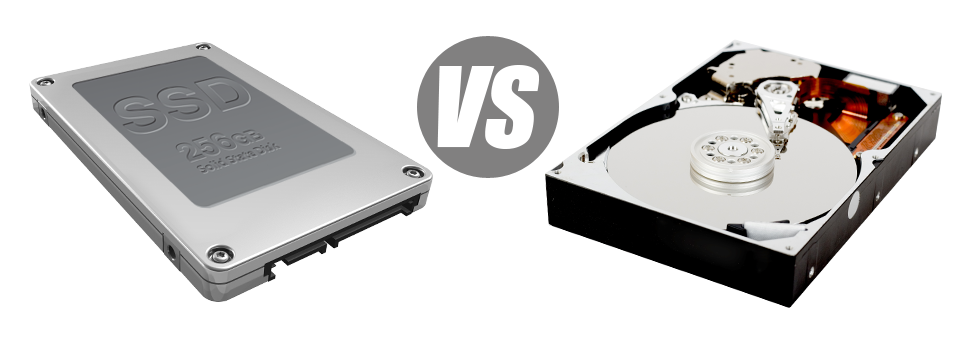For decades there seemed to be a single efficient path to store data on a pc – employing a disk drive (HDD). However, this sort of technology is already displaying it’s age – hard drives are noisy and sluggish; they’re power–hungry and frequently generate a great deal of warmth during intensive operations.
SSD drives, on the other hand, are extremely fast, consume way less energy and are much cooler. They feature an innovative solution to file accessibility and storage and are years in front of HDDs with regard to file read/write speed, I/O efficiency and then energy efficacy. Discover how HDDs fare against the more recent SSD drives.
1. Access Time
Resulting from a radical new solution to disk drive performance, SSD drives make it possible for faster data access rates. With an SSD, data access times are much lower (as small as 0.1 millisecond).
HDD drives still make use of the exact same basic data access technology that’s actually developed in the 1950s. Although it has been vastly advanced ever since, it’s sluggish compared to what SSDs will provide. HDD drives’ data access rate varies in between 5 and 8 milliseconds.
2. Random I/O Performance
The random I/O performance is critical for the performance of a file storage device. We have executed substantial lab tests and have established an SSD can deal with a minimum of 6000 IO’s per second.
Over the same lab tests, the HDD drives turned out to be much slower, with 400 IO operations handled per second. Although this may appear to be a great number, if you have a busy web server that contains numerous famous web sites, a sluggish hard disk can result in slow–loading websites.
3. Reliability
The lack of moving parts and rotating disks within SSD drives, and the latest developments in electronic interface technology have resulted in a much reliable file storage device, with a normal failure rate of 0.5%.
Since we have already documented, HDD drives rely on spinning disks. And anything that uses a number of moving parts for continuous intervals is susceptible to failing.
HDD drives’ typical rate of failing ranges among 2% and 5%.
4. Energy Conservation
SSDs lack moving elements and require very little cooling down energy. They also need not much electricity to operate – tests have established they can be operated by a normal AA battery.
In general, SSDs take in between 2 and 5 watts.
HDD drives are known for being noisy; they can be more likely to heating up and whenever you have several disk drives in one hosting server, you have to have an extra a / c system simply for them.
As a whole, HDDs use up somewhere between 6 and 15 watts.
5. CPU Power
Because of SSD drives’ greater I/O performance, the key server CPU can process data file requests a lot quicker and save time for additional functions.
The standard I/O delay for SSD drives is only 1%.
HDD drives accommodate reduced access rates compared to SSDs do, resulting for the CPU needing to hang on, although arranging resources for your HDD to find and return the required data.
The standard I/O delay for HDD drives is approximately 7%.
6.Input/Output Request Times
In real life, SSDs function as admirably as they have in the course of the checks. We ran an entire system back–up on one of the production machines. All through the backup operation, the average service time for any I/O requests was indeed below 20 ms.
With the exact same web server, however this time equipped with HDDs, the effects were totally different. The average service time for any I/O call changed in between 400 and 500 ms.
7. Backup Rates
You can easily feel the real–world advantages of using SSD drives on a daily basis. By way of example, on a hosting server with SSD drives, a full backup is going to take merely 6 hours.
We used HDDs exclusively for a couple of years and we’ve excellent comprehension of just how an HDD functions. Creating a backup for a server furnished with HDD drives is going to take around 20 to 24 hours.
If you want to easily add to the efficiency of your respective sites without having to transform any kind of code, an SSD–driven hosting service will be a really good choice. Examine the website hosting packages along with our VPS servers – our solutions offer fast SSD drives and can be found at reasonable prices.
Hepsia
- Live Demo
Service guarantees
- Register today. There aren’t any configuration costs and you’ll have total SSH/full root access to your server. 99.9% network availability is guaranteed.
Compare our prices
- Check out our price list and choose the right Virtual Private Server for your active sites. It is easy to migrate to a more advanced VPS Hosting configuration with simply a click of the mouse.
- Compare our hosting plans
Contact Us
- Get in touch with us round the clock by email or by employing our extremely–fast ticketing system. Our techs are ready to respond to your questions within just 1 hour.















